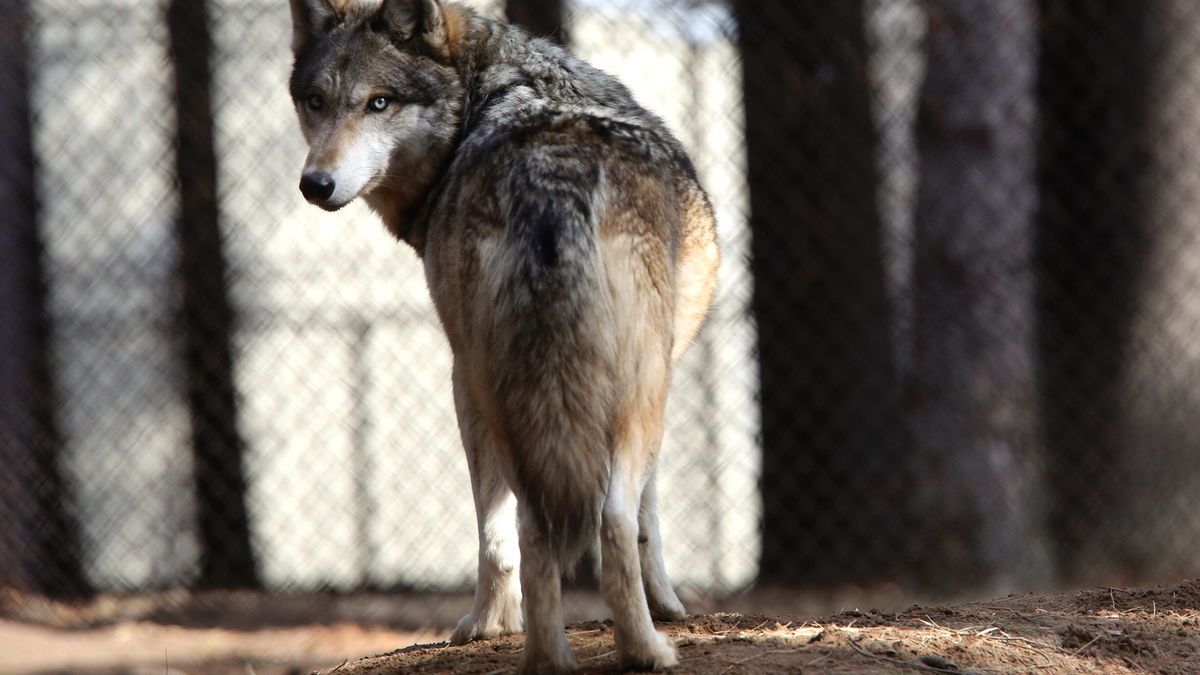
Dogs cooperate well with humans because they share behavioral characteristics with wolves, according to a study published in Scientific Reports. (Dave Kettering/Telegraph Herald via AP, File)
Dogs cooperate well with humans because of “the wolf within,” new research suggests.
The study, published in Scientific Reports last week, claimed that dogs work well with humans due to specific behavioral characteristics they share with wolves.
Led by Friederike Range from the Konrad Lorenz Institute at the University of Veterinary Medicine Vienna, researchers studied how dogs and grey wolves cooperated with humans to solve specific tasks.
WOLFDOG HYBRID GAINS ONLINE FAME AT FLORIDA SANCTUARY
They tested 15 young grey wolves, from 2 to 8 years old and 12 mixed-breed dogs, from 2 to 7 years old, at the Wolf Science Center in Austria.
Both kinds of animals had been socialized with people early on and had developed close ties to humans. They were all kept under similar conditions.
Researchers compared how both animals worked with humans to complete a string-pulling task and found both dogs and wolves were able to collaborate.
4 CANADIAN WOLVES AIR-DROPPED IN US NATIONAL PARK TO DEAL WITH MOOSE
However, wolves initiated more while dogs only followed the human’s actions.
"The detailed analysis of the cooperative interactions revealed interesting differences between wolves and dogs. It shows that, while wolves tend to initiate behavior and take the lead, dogs are more likely to wait and see what the human partner does and follow that behavior," Range said.
Past hypotheses have suggested that dogs developed collaborative qualities as they were being domesticated, but this new study suggests they were naturally cooperative.
Range and his colleagues suggested that as dogs were domesticated, the more submissive dogs were chosen for breeding, which is why they are so deferential today.








































